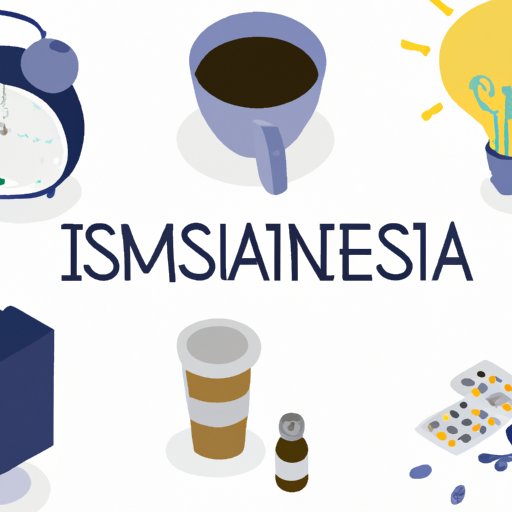The Sleep Struggle: How to Fall Asleep When You Can’t
Insomnia is a common problem that affects many people at some point in their lives. Whether it’s difficulty falling asleep or staying asleep, it can significantly impact our physical and mental health. Lack of sleep can lead to fatigue, irritability, and decreased productivity. Fortunately, there are ways to overcome insomnia and establish healthy sleep habits. In this article, we will explore tips and techniques to help you fall asleep when you can’t.
Establish a Sleep Routine
Having a consistent sleep routine is essential for promoting healthy sleep habits. Our bodies thrive on routine, and having a regular schedule can help regulate our sleep-wake cycle. Here are some tips on how to establish a sleep routine:
1. Set a consistent bedtime and wake-up time: It’s important to go to bed and wake up around the same time every day. This helps regulate our body’s internal clock and promotes healthy sleep habits. Aim for seven to eight hours of sleep each night.
2. Avoid napping during the day: Napping during the day can throw off your sleep routine and make it harder to fall asleep at night. If you feel the need to nap, keep it short and limit it to early afternoon.
3. Stay consistent even on the weekends: It’s tempting to stay up late and sleep in on the weekends, but this can disrupt your sleep routine. Try to stick to your regular sleep schedule, even on weekends.
Create a Relaxing Environment
Our environment can significantly affect our ability to fall asleep. Creating a peaceful and relaxing sleep environment can help promote healthy sleep habits. Here are some tips on how to create a calming sleep environment:
1. Turn off electronics: The blue light emitted from electronics can disrupt our circadian rhythm and make it harder to fall asleep. Turn off all electronics at least an hour before bedtime.
2. Keep the room cool and dark: A cooler room with minimal light can help promote healthy sleep habits. Use blackout curtains or an eye mask to block out any light in the room.
3. Use relaxation techniques such as aromatherapy or a sound machine: Calming scents and sounds can help relax the mind and promote healthy sleep habits. Try using essential oils or a sound machine to create a relaxing sleep environment.
Avoid Caffeine and Stimulants
Caffeine can significantly impact our ability to fall asleep. It’s essential to limit caffeine intake, especially in the hours leading up to bedtime. Here are some tips on how to avoid caffeine and other stimulants:
1. Limit caffeine intake several hours before bedtime: It’s best to stop consuming caffeine at least six hours before bedtime. This includes coffee, tea, soda, and chocolate.
2. Avoid other stimulants such as energy drinks and nicotine: Stimulants can negatively impact our sleep routine. If you’re having difficulty sleeping, it may be beneficial to avoid these substances altogether.
Wind Down with a Book or Music
Winding down before bedtime is essential for promoting healthy sleep habits. Avoiding electronic devices and other stimulating activities can help the mind and body relax. Here are some tips on how to wind down before bed:
1. Read a book or listen to calming music: Reading a book or listening to calming music can help the mind relax and promote healthy sleep habits. Choose a book or music that helps you feel calm and relaxed.
2. Avoid watching TV or scrolling through social media before bedtime: The blue light emitted from electronic devices can disrupt our sleep routine and make it harder to fall asleep. Avoid these activities at least an hour before bedtime.
Try Relaxation Techniques
Relaxation techniques can help calm the mind and relax the body, making it easier to fall asleep. Here are some examples of relaxation techniques to try:
1. Yoga: Practicing yoga before bedtime can help relax the mind and body. Incorporate gentle poses and deep breathing exercises to promote healthy sleep habits.
2. Meditation: Meditating before bedtime can help reduce stress and promote healthy sleep habits. Practice mindfulness meditation or body scan meditation to calm the mind and relax the body.
3. Breathing exercises: Deep breathing exercises can help regulate the body’s nervous system and promote healthy sleep habits. Practice belly breathing or alternate nostril breathing to calm the mind and relax the body.
Consult with a Doctor
If you’re having difficulty falling asleep, it may be necessary to consult with a healthcare professional. Chronic insomnia can significantly impact our physical and mental health, and it’s essential to address it promptly. Here are some tips on how to find a healthcare professional for assistance:
1. Talk to your primary care physician: Your primary care physician can provide guidance and assistance for addressing insomnia. They may also refer you to a sleep specialist for further evaluation.
2. Consider a sleep study: A sleep study can provide valuable information on how to address insomnia. This includes identifying potential sleep disorders and developing a personalized treatment plan.
Conclusion
Falling asleep when you can’t is a common problem, but there are ways to overcome insomnia and establish healthy sleep habits. By following the tips and techniques outlined in this article, you can promote healthy sleep habits and improve your overall health and well-being. Remember to establish a consistent sleep routine, create a relaxing sleep environment, avoid caffeine and stimulants, wind down before bed, try relaxation techniques, and consult with a healthcare professional if necessary.
